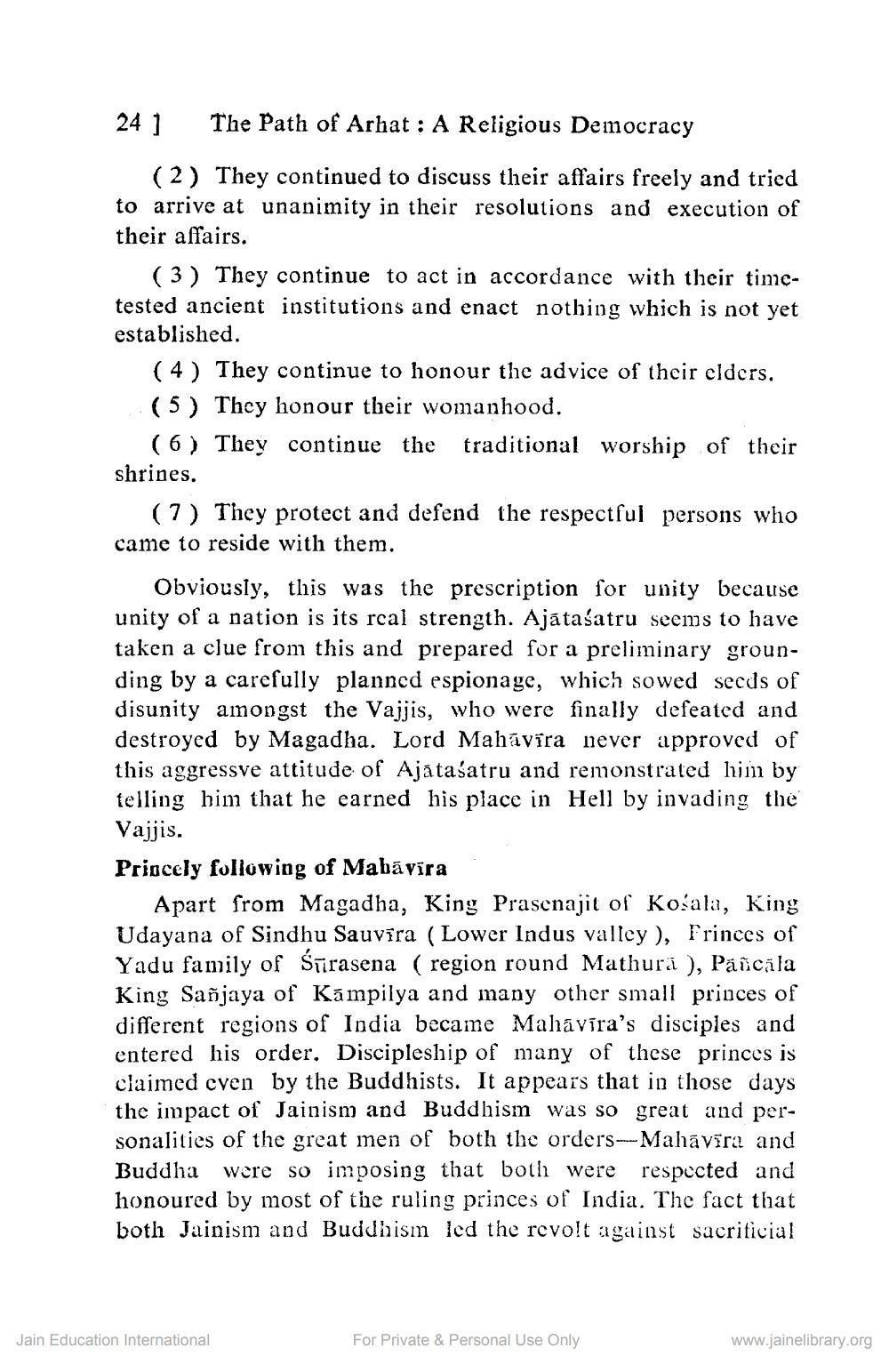________________
24 1
The Path of Arhat: A Religious Democracy
(2) They continued to discuss their affairs freely and tried to arrive at unanimity in their resolutions and execution of their affairs.
(3) They continue to act in accordance with their timetested ancient institutions and enact nothing which is not yet established.
(4) They continue to honour the advice of their elders. (5) They honour their womanhood.
(6) They continue the traditional worship of their shrines.
(7) They protect and defend the respectful persons who came to reside with them.
Obviously, this was the prescription for unity because unity of a nation is its rcal strength. Ajātaśatru seems to have taken a clue from this and prepared for a preliminary grounding by a carefully planned espionage, which sowed seeds of disunity amongst the Vajjis, who were finally defeated and destroyed by Magadha. Lord Mahāvīra never approved of this aggressve attitude of Ajátasatru and remonstrated him by telling him that he earned his place in Hell by invading the Vajjis. Priocely following of Mabävira
Apart from Magadha, King Prasenajit of Kosala, King Udayana of Sindhu Sauvīra (Lower Indus valley), Frinces of Yadu family of Surasena ( region round Mathura ), Páscála King Sañjaya of Kampilya and many other small princes of different regions of India became Mahāvīra's disciples and entered his order. Discipleship of many of these princes is claimed cven by the Buddhists. It appears that in those days the impact of Jainism and Buddhism was so great and personalities of the great men of both the orders--Mahāvīra and Buddha were so imposing that both were respected and honoured by most of the ruling princes of India. The fact that both Jainism and Buddhism led the revolt against sacrificial
Jain Education International
For Private & Personal Use Only
www.jainelibrary.org




